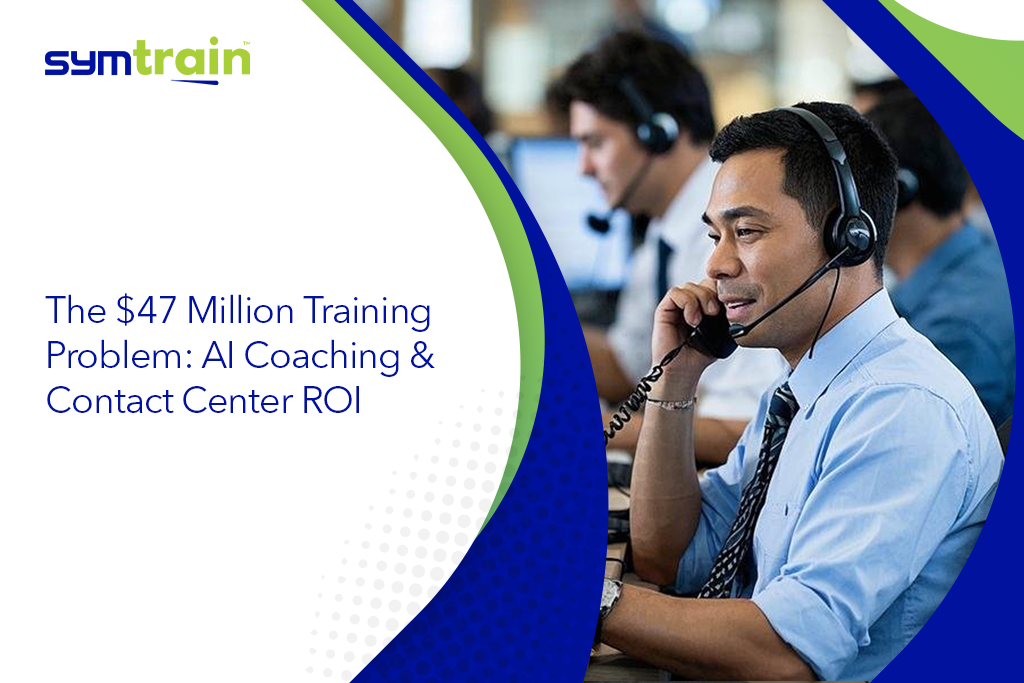The Essential CX Trends Shaping 2025 and Beyond

The customer experience landscape is undergoing its most significant transformation in decades. As we move through 2025, organizations worldwide are grappling with rapidly evolving customer expectations, revolutionary AI capabilities, and the imperative to deliver seamless, personalized experiences at scale.
Recent industry research reveals a striking reality: customer experience is no longer just part of the business—it IS the business. Companies that fail to adapt to these emerging trends risk being left behind as the gap between CX leaders and laggards continues to widen dramatically.
The AI Revolution Reshapes Customer Interactions
Artificial intelligence has moved from experimental technology to business-critical infrastructure in record time. According to the latest CMP Research benchmarking data, 74% of customer contact leaders plan to invest in automation using AI, with more than half prioritizing AI-driven self-service chatbots and real-time agent assist tools.
This isn't just about efficiency—it's about fundamentally reimagining how businesses engage with customers. Organizations are discovering that AI's value lies not in replacing human interaction, but in enhancing it through intelligent automation and predictive insights.
From Reactive to Proactive: The Outbound Revolution
One of the most significant shifts we're witnessing is the move from reactive customer service to proactive customer engagement. Forward-thinking organizations are "harnessing predictive analytics and deep customer understanding to anticipate needs, preemptively resolve issues, and engage customers through their preferred channels," as highlighted in NICE's comprehensive trend analysis.
This proactive strategy delivers measurable results. Companies implementing unified inbound and outbound engagement platforms report not only elevated customer satisfaction but also optimized operational efficiency through reduced inbound call volume and improved first-contact resolution rates.
Personalization Reaches New Heights
While personalization isn't new, generative AI is enabling a completely new form of interaction that goes beyond traditional segmentation, according to insights from the recent CCW Congress. Greg Thomas, Senior Director of Thought Leadership at Genesys, emphasizes that "personalization has become table stakes. Brands should be analyzing content and sentiment from journeys and interactions to understand what their customers value."
Today's customers are no longer satisfied with surface-level personalization. They expect brands to leverage their complete interaction history, preferences, and behavioral patterns to deliver truly relevant experiences. This shift requires organizations to move beyond basic demographic segmentation toward real-time, AI-powered personalization that adapts to individual customer needs in the moment.
The Omnichannel Imperative Intensifies
The demand for seamless omnichannel experiences has reached a critical tipping point. Research from Genesys reveals a stark disconnect: 97% of consumers say it's important to be able to move between channels and have context preserved, but only 16% of CX leaders have fully integrated systems and data to do this.
This gap creates significant friction. When customers are forced to repeat information across channels, approximately 20% say it makes them want to scream—a clear indicator that channel fragmentation is actively damaging customer relationships.
The solution lies in adopting interaction-centric platforms that unify voice, digital, human, and virtual agent channels. Organizations must support seamless transitions between virtual and human agents while maintaining complete context throughout the customer journey.
AI Agents: From Tools to Autonomous Workforce
The evolution of AI agents represents perhaps the most revolutionary development in customer experience technology. These aren't simple chatbots—they're fully autonomous entities capable of complex work, combining large language models with tools, memory, and self-optimization capabilities.
As described in McKinsey research, we're witnessing "a move from information to action—think virtual coworkers able to complete complex workflows" that promises unprecedented levels of productivity and innovation. These AI agents can collaborate, distribute tasks, and reshape entire workflows, creating what amounts to a new 24/7 AI-powered workforce.
The Critical Role of Knowledge Management
As AI becomes more prevalent in customer interactions, the convergence of knowledge management and AI management has become essential. The risk of AI "hallucinations"—inaccurate or misleading information—poses significant brand reputation threats.
Organizations are addressing this challenge by vectorizing knowledge bases and implementing Retrieval-Augmented Generation (RAG) technology. This approach restricts AI systems to vetted, verified information while enabling real-time accuracy improvements through continuous learning and validation.
Digital-First, But Not Digital-Only
While digital channels offer unprecedented efficiency and convenience, successful CX strategies recognize that "there are moments when a human touch, warm voice, or a blended approach is necessary to resolve complex issues or provide personalized care."
The most effective organizations are those that blend digital efficiency with human empathy and adaptability. This hybrid approach ensures comprehensive experiences across all touchpoints while maintaining the personal connection that customers value for complex or emotionally charged interactions.
Measuring Success in the AI Era
Traditional customer service metrics are evolving rapidly as AI becomes integral to customer experience operations. Organizations are beginning to prioritize new KPIs that reflect AI-driven interaction performance, including:
- AI-assisted resolution rates
- Customer satisfaction with AI interactions
- Agent acceptance rates of AI-generated recommendations
- Types of intents escalated from AI to human agents
This shift toward AI observability enables organizations to track the true impact of artificial intelligence on customer experience while identifying opportunities for continuous improvement.
The SMB Opportunity
Small and mid-sized businesses are finding unprecedented opportunities through the convergence of Unified Communications as a Service (UCaaS) and Contact Center as a Service (CCaaS). This integration, years in the making, is now becoming mainstream and accessible to organizations of all sizes.
Cost-effective solutions are enabling smaller organizations to access enterprise-grade communication and customer service capabilities, allowing them to compete more effectively with larger enterprises while maintaining operational efficiency.
The Human Element: AI Coaching and Workforce Evolution
As organizations embrace these technological advances, one critical trend emerges: AI will enhance 100% of CX roles by 2026, according to industry predictions. However, this enhancement doesn't diminish the importance of human agents—it transforms their role entirely.
The future belongs to AI-augmented human agents who can leverage artificial intelligence to deliver more personalized, efficient, and emotionally intelligent customer experiences. This transformation requires sophisticated AI coaching systems that can:
Provide Real-Time Guidance: AI coaching platforms analyze conversations in real-time, offering agents immediate suggestions for improving sentiment, resolving issues more effectively, and personalizing interactions based on customer history and preferences.
Enable Continuous Learning: Unlike traditional training programs, AI coaching creates continuous learning opportunities. Agents receive personalized feedback and coaching recommendations based on their individual performance patterns, interaction outcomes, and areas for improvement.
Optimize Agent-Customer Matching: Advanced AI routing systems don't just connect customers to available agents—they match customers with agents who have the specific skills, experience, and personality traits most likely to create successful interactions.
Enhance Performance Consistency: AI coaching helps reduce the performance variability that often exists between different agents, teams, and shifts. By providing consistent guidance and real-time support, organizations can ensure every customer receives high-quality service regardless of when or how they interact with the company.
The research shows that companies implementing AI coaching solutions are seeing significant improvements: 21.6% increase in handled calls per agent per hour, 35-second reductions in average handle time, and 90% reduction in after-call work, as demonstrated by organizations leveraging advanced AI coaching platforms.
This transformation represents more than efficiency gains—it's about creating a new model of human-AI collaboration where technology amplifies human capabilities rather than replacing them. Agents equipped with AI coaching can focus on building relationships, solving complex problems, and delivering the empathy and emotional intelligence that customers value most.
Looking Ahead: The Future of CX
The customer experience trends emerging in 2025 represent more than incremental improvements—they signal a fundamental transformation in how businesses connect with customers. As AI capabilities continue advancing and customer expectations keep rising, organizations must embrace these changes proactively rather than reactively.
Success in this new landscape requires a holistic approach that combines cutting-edge technology with human insight, operational efficiency with emotional intelligence, and global reach with personalized touch. The companies that master this balance—leveraging AI coaching to empower their human workforce while deploying autonomous AI agents for routine tasks—will not only survive the current transformation but will define the future of customer experience.
The message is clear: the future of customer experience isn't about choosing between human agents and AI—it's about creating powerful partnerships between them. Organizations that invest in AI coaching and agent empowerment today will build the foundation for sustained competitive advantage in an increasingly AI-driven world.
This analysis is based on comprehensive research from NICE CXone trend reports, CCW Digital research, Genesys customer experience studies, CMP Research benchmarking data, and insights from the 2025 CCW Congress in Berlin.
Coming Next: In Part 2 of this series, we'll dive deeper into the specific implementation strategies, technologies, and metrics that leading organizations are using to transform their customer experience operations. We'll also explore practical frameworks for implementing AI coaching programs and provide actionable guidance for building AI-human collaboration models that drive measurable business results.


